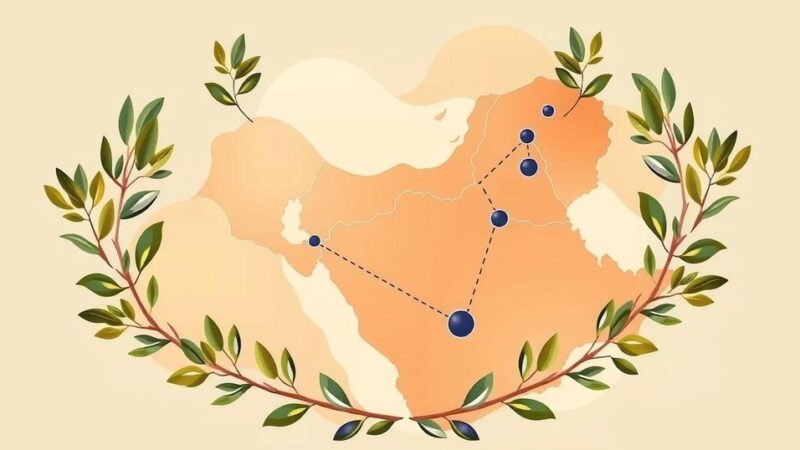The article outlines Jordan’s and Egypt’s firm opposition to plans suggesting the forced displacement of Palestinians from Gaza, initiated by former U.S. President Donald Trump. King Abdullah II emphasizes Jordan’s historical experience with Palestinian issues. Regional stability is jeopardized as leaders brace for possible conflict or seek diplomatic resolutions amid escalating tensions.
The current tension in the Middle East has escalated following King Abdullah II of Jordan’s firm stance against any annexation of Palestinian territories or forced displacements. This response came after comments by former U.S. President Donald Trump suggesting that the U.S. take control of Gaza and relocate Palestinians, which has drawn significant international backlash. Both Jordan and Egypt have expressed unequivocal opposition to any plans that would forcibly displace Palestinians, viewing such actions as violations of international law that threaten regional stability.
Jordan’s concerns extend beyond security, touching on national identity, particularly given its historical context with Palestinian displacement during the Black September conflict of 1970. Current fears of a mass influx of refugees threaten to strain national resources and potentially instigate internal conflict. As tensions mount, Jordan has fortified its western borders, with Israel responding by establishing a new military division in the east.
Egypt also opposes the proposed displacement of Palestinians, communicating with regional allies to unify their stance against these actions. The Egyptian Foreign Minister has engaged in discussions with eleven countries to show support for Palestinian rights and sovereignty, emphasizing Egypt’s role as a significant U.S. ally in fostering peace in the region.
Looking ahead, the potential outcomes in this evolving situation include the possibility of full-scale war involving Jordan, a delicate diplomatic resolution, or further regional chaos. The actions of regional leaders in the coming days will be critical in determining whether the Middle East edges closer to conflict or secures a path to tenuous peace.
The geopolitical climate in the Middle East is highly sensitive, particularly regarding Palestinian rights and territorial integrity. Recent developments, including remarks from U.S. leaders suggesting realignment of Palestinian refugees, have reignited longstanding tensions. Jordan, deeply affected by historical events involving Palestinians, views the current proposals as a direct threat not only to regional stability but also to its national identity and internal security.
The situation in the Middle East remains precarious as both Jordan and Egypt stand resolutely against any proposals for the forced relocation of Palestinians. As diplomatic discussions continue, regional leaders must navigate these complicated dynamics to avoid escalating tensions. The potential for conflict or a peaceful resolution hangs in the balance, with both nations reinforcing their positions firmly against displacement measures.
Original Source: resonantnews.com






